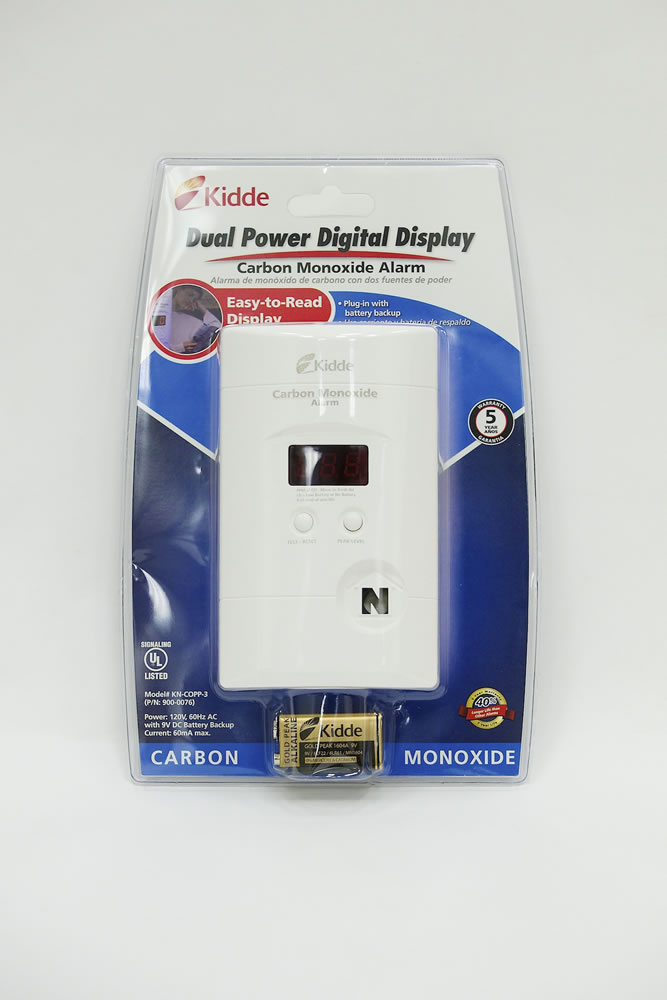Carbon monoxide is a poisonous gas that cannot be seen or smelled and can kill a person in minutes.
Between 1990 and 2005, 1,000 Washington residents died as a result of carbon monoxide exposure.
Beginning Jan. 1, state law requires carbon monoxide alarms to be installed in all existing apartments, condominiums, hotels, motels and single-family residences.
Exceptions include owner-occupied single-family residences, legally occupied before July 26, 2009, although sellers must equip the residence with alarms before any other person legally occupies the home.
Also exempt are sleeping units in new or existing motels, hotels, college dormitories, and state-licensed boarding home and residential treatment facilities that do not contain a fuel-burning appliance, fireplace or attached garage
Carbon monoxide is a poisonous gas that cannot be seen or smelled and can kill a person in minutes.
Between 1990 and 2005, 1,000 Washington residents died as a result of carbon monoxide exposure.
Beginning Jan. 1, state law requires carbon monoxide alarms to be installed in all existing apartments, condominiums, hotels, motels and single-family residences.
Exceptions include owner-occupied single-family residences, legally occupied before July 26, 2009, although sellers must equip the residence with alarms before any other person legally occupies the home.
Also exempt are sleeping units in new or existing motels, hotels, college dormitories, and state-licensed boarding home and residential treatment facilities that do not contain a fuel-burning appliance, fireplace or attached garage
Source: Washington State Building Code Council
Source: Washington State Building Code Council
Sales of carbon monoxide detectors are speeding up these days in the final countdown to a new Washington state law that requires the alarms to be installed in rental homes and apartments.
“They’re mostly selling to property owners,” said Troy Batten, department supervisor at the Home Depot store on Southeast 192nd Avenue in Vancouver, where sales of the detectors have been brisk.
The new law goes into effect Jan. 1 for landlords, builders of new homes and sellers of existing homes. Owner-occupied homes that were legally occupied before July 26, 2009, are not required to have the detectors until the house is sold, said Jon Dunaway, Clark County fire marshal. The new law aims to prevent accidental deaths from the odorless, colorless gas.
Symptoms of carbon monoxide poisoning include headache, nausea, dizziness, chest pain and confusion. Continued exposure eventually causes victims to lose consciousness, Dunaway said.
“Sometimes you have no idea until you start feeling the symptoms,” he said.
Sources of carbon monoxide include generators in garages near air intakes and charcoal or gas grills used indoors. Fuel-burning appliances, exhaust from vehicles in attached garages and fireplaces are among other sources.
“Anything from a wood stove or gas appliance — even a water heater if it’s not vented properly,” Dunaway said.
State legislators passed the law in 2009, partly in response to the storms that struck Washington in December 2006, when more than 1,000 citizens were seen at hospital emergency rooms with symptoms of carbon monoxide poisoning. Eight people reportedly died of carbon monoxide exposure.
The legislation’s intent was “to prevent similar tragedies from occurring in the future,” its language stated.
All 50 states have adopted similar laws, according to the International Code Council, which sets the codes that states modify and adopt.
Washington’s new state law differs from the international code in two ways, said Tim Nogler, managing director of the Washington State Building Code Council.
“The state law applies to all residences, the exception being if you already are in your home,” Nogler said.
Sellers are required to equip the residence with alarms before anyone else legally occupies the house.
The other big difference from the international code is that Washington’s law requires carbon monoxide detectors in all houses — even those without gas appliances or attached garages. That’s because many poisoning cases are caused by an introduced source, such as the indoor use of an outdoor-only heating device.
Detectors are not required in sleeping units in hotels, motels, dormitories and state-licensed boarding and residential treatment facilities that do not contain fuel-burning appliances, fireplaces or attached garages, according to the law.
Carbon monoxide detectors — about the same size as a smoke detector — retail for between $19 and $39. Some combination alarms detect both smoke and elevated levels of carbon monoxide.
The alarms must be located outside each separate sleeping area and on each level of the residence, Dunaway said.
Landlords, builders and home sellers are expected to abide by the new law willingly, as county officials don’t have the manpower to make sure the alarms are installed in all rented houses, Dunaway said.
Nogler said if a building’s landlord doesn’t comply, its renters may have to seek legal aid.
Code officers will only check for compliance when a permit is required for new construction and for most alterations, repairs and additions.
“The fire department is not going to go out and check for these,” he said.



